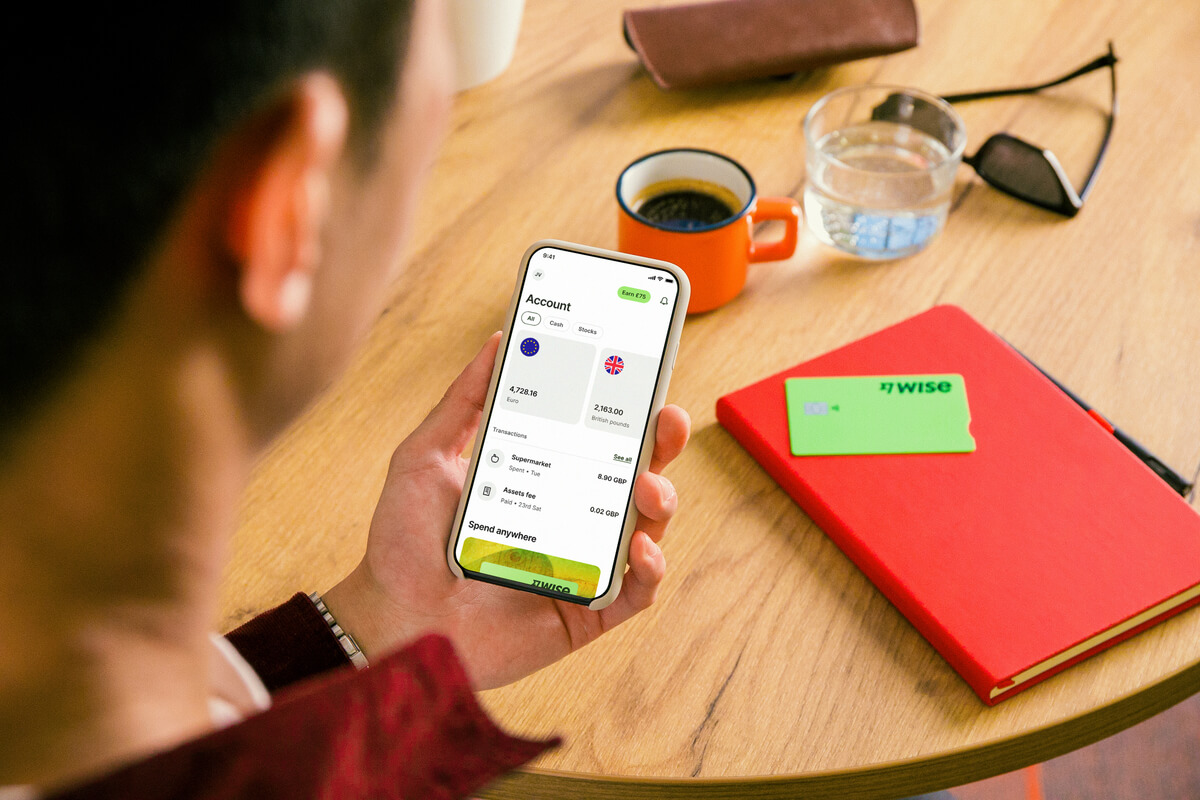What do you need to receive money with Western Union?
Receiving money through Western Union? Learn about the process, from cash pick-up to bank transfers, and find out what to expect.

Allied Irish Banks (AIB) is one of the top Irish banks and they offer several ways for you to make international payments. Here’s our guide to what you need to know if you’re looking to make an international transfer with AIB, including how much it will cost you.
But you’ll also find out how you could likely save money with sending money with Wise instead. Wise uses the mid-market rate (the one you normally find on Google) and this can make a significant difference in your payments abroad.
Wise: Send money to
+140 countries 🌎
A quick example before we get started
Let's imagine a theoretical online bank transfer at standard speed sending €1000 from Ireland to a Pound sterling bank account in the UK.
While it may look like you’re just comparing the fees at first glance, it isn’t just the stated fees you need to pay attention to.
| Sending €1000 to the UK | Fees | Exchange rate | Amount received |
|---|---|---|---|
| AIB Bank | €15.00² | 1.0286¹ | $1028.60 plus a €15.00 fee |
| Wise | €6.21 | 1.04065 | $1034.19 |
As you can see the difference in fees immediately stands out, but what about the exchange rate difference? Over this sum of money it actually works out to be as significant as the fees themselves, making it clear just how important it is to check the exchange rates among a few competitors before deciding who should handle your international transfers.
| 🔎 Read more: How does Wise work in Ireland? |
|---|

When making an international payment it generally doesn’t matter which provider you use, there’s going to be some fees. The difference is what those fees are, as this is going to impact how much the transaction costs.
These are the fees for making an AIB international transfer online.
| Transaction Type | Fees for sending money online² |
|---|---|
| Standard euro payments to SEPA zone | No fee |
| Urgent euro payments to SEPA zone | €12.70 |
| Standard payments to major currencies in most destinations worldwide | €15.00 |
| Urgent payments to major currencies in most destinations worldwide | €22.50 |
Keep in mind these fees only apply to online AIB transfers - there’s a different set of fees if you go into a branch and make the transfer. There also may be additional fees charged by other banks involved in the transaction. The details of your particular case might be different, so it’s best to check directly with AIB if you want to be completely sure of what they’ll charge you.
What you may not realize when sending money abroad is that the exchange rate might end up costing you as well. Usually, when banks make international transfers, they’re able to set their own exchange rates, so they won’t be as good value for you as the mid-market rate.
Unfortunately, AIB doesn’t make it clear where their exchange rates come from, what kind of spread they use, or if they add a margin on top when you send and receive foreign currency.
So, before you commit, make sure you’re getting a good rate by checking an online currency converter to compare the mid market exchange rate with the one you’re being offered.
With Wise you always get the mid-market rate, no matter what kind of transaction you’re doing. There’s no hidden fees or profit margins to worry about, and you can check it any time on the website or through the Wise app.
| 🔎 Read more: AIB exchange rate |
|---|

Wise is not a bank, but it’s a payment institution and an alternative way to send money internationally to +140 countries.
As mentioned above, Wise uses the mid-market rate (the one you normally find on Google). This means that Wise does earn money on the currency conversion or apply hidden fees on it.
Wise fees are always stated upfront, and they are based on the amount you want to transfer, the currencies involved and the payment method you choose. You can see the exact exchange rate used before you make the transfer.
If you often need access to multiple currencies or money in several countries, a Wise Account can help you even more. It lets you hold and convert money in more than 40 currencies, and you can receive payments via local account details in +8 currencies.
You'll also be able to order a Wise card, that will be connected to your account, allowing you to spend in multiple currencies around the world.
Open your Wise Account
for free 🚀
There are 2 ways you can make an international payment with AIB: online or by PayLink international paper application form. AIB recommends the online option as cheaper and easier.
If you want to make the transfer online, you’ll need to sign up with AIB’s internet banking service. Once you’re registered, make sure you have your login details - when you’re logged in, go to the ‘Pay & Transfer’ section, select “International Payment” and follow the options. You might need a code card or card reader to verify the transaction.⁴ If you go to a branch, there’s a form to fill out which a teller will talk you through.

There are 2 methods for making international payments⁴:
- Paylink Euro, which is for euro payments to a SEPA zone country
- Paylink, which is for other payments
The first thing you’ll need online is your login information, and have your code card or card reader at the ready too. You’ll also need the following details:
- The recipient’s name and address
- The recipient’s IBAN or other account number
- The recipient’s BIC or the name and address of a foreign bank
- The bank branch’s national bank code if they don’t have an IBAN
AIB offers standard and urgent international payment services, so the speed of the transfer depends on which of those options you choose.
A standard SEPA payment, via their Paylink Euro service, takes 1 business day at most, while an urgent one may be done on the same day.
Other payments are done by their Paylink service: standard payments take 1-4 business days, while urgent payments might be done on the same day. It often takes longer if you do the request by paper, rather than online.⁴
To ensure the fastest possible transfer, you should meet AIB’s cutoff times - the latest times in the day you can request the payment and expect the turnaround times listed above to be met.
AIB has a range of different cutoff times depending on the currency, and also on whether the payment is standard or urgent - take a look at the list of cutoff times by currency on their website.
But as an example, Euro (standard) payments in Euro to a SEPA zone country up to a maximum of €10,000 made before 2.00pm on a Business day may be credited to the beneficiary bank the same business Day.⁴
When transferring money abroad via AIB Phone or Internet Banking there are some daily AIB transaction limits to be aware of³:
- New payee limit of €1000 on the AIB Mobile app
- Selfier check user limit of €10,000 on the AIB Mobile app
- €10,000 limit for non-SEPA international payments
- €10,000 limit for payment within Ireland and the SEPA zone
If you want to do a large money transfer with AIB you need to visit a branch.
Sources:
All sources checked on 23nd December 2024
*Please see terms of use and product availability for your region or visit Wise fees and pricing for the most up to date pricing and fee information.
This publication is provided for general information purposes and does not constitute legal, tax or other professional advice from Wise Payments Limited or its subsidiaries and its affiliates, and it is not intended as a substitute for obtaining advice from a financial advisor or any other professional.
We make no representations, warranties or guarantees, whether expressed or implied, that the content in the publication is accurate, complete or up to date.

Receiving money through Western Union? Learn about the process, from cash pick-up to bank transfers, and find out what to expect.

Need to get money from abroad? Learn about the ways you can receive international transfers through An Post in Ireland..

Discover the best way to send money from Ireland to the UK for property purchases. Compare costs, timing, and methods for transferring money safely.

Looking to receive a payment through Remitly? Discover all the ways you can get your money in Ireland.

Discover how you can send money abroad with An Post and what fees and rates you'll need to pay.

If you need to receive an international transfer with AIB Ireland, read this article to discover all about it.